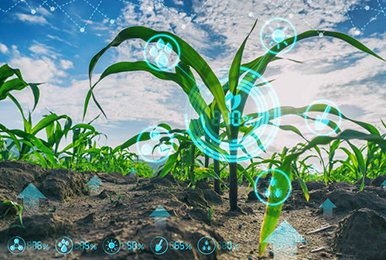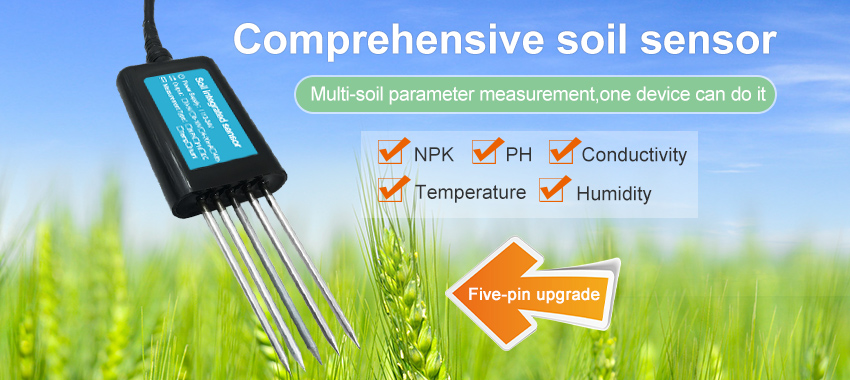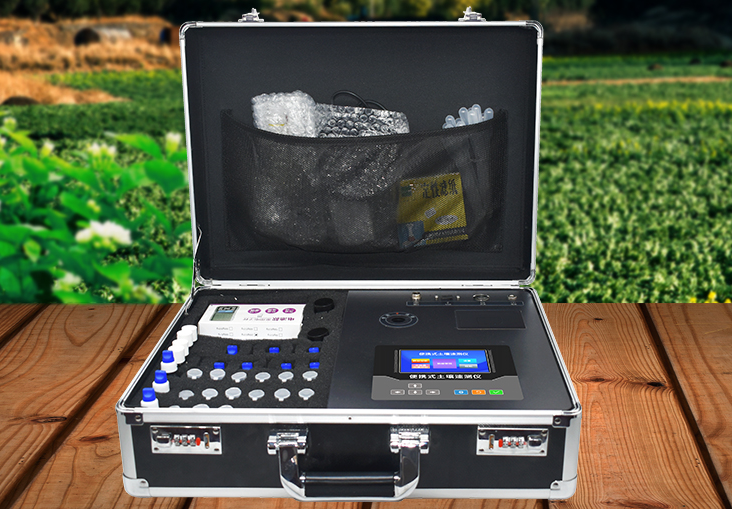Background:
Agriculture has changed a lot in the past hundred years. New technology like electric equipment and synthetic fertilizers have empowered farmers to grow large amounts of food more successfully and predictably than ever before. However, many modern farming practices aren’t effective long term. Tilling and chemical sprays wear down soil health and affect future crops.Healthy soil functions as a living organism and is incredibly complex. Details like soil pH, moisture content and mycorrhizae levels affect how plants grow. Many farmers use soil tests to help them understand what’s going on underground and supplement their crops. Here are some potential benefits of using smartphones for soil nutrient testing.The combination of smart phones and Internet of Things soil nutrient detector allows people to better understand the soil situation

Healthy soil is complicated
Healthy soil contains organic matter and natural minerals such as calcium, phosphorus and magnesium. It’s also home to billions of microbes, including beneficial bacteria and fungi. These microbes form a symbiotic relationship with plant roots, so each organism gets the nutrients it needs to thrive.
Healthy soils absorb rainwater and filter it into underground aquifers, protecting structures and reducing the need for watering. Worms and plant roots create tunnels that carry oxygen underground. This oxygen makes it easier for the roots to get important nutrients and water.
Investing in healthy soils takes time, but is worth the effort. Fertilizers and pesticides kill the natural microbes that support crops from scratch. Soil grown with organic materials naturally protects plants from disease. Investing in organic, chemical-free soil will make your farm stronger and more efficient every year.

Types of soil tests
It is vital to know more about soils. Dirt can come in six different consistencies: loamy, sandy, peaty, silty, chalky, and clay. Each of these types has a different texture and ability to retain moisture. The amount of nutrients and microorganisms in a soil depends on many factors, including its species and how it was previously managed.
Farmers can measure their soil type with some home tests. A simple pH kit will determine the acidity level. Most crops thrive in slightly acidic soils, or in a pH range of 6.5-7. You can easily adjust pH by adding agricultural lime or compost to raise or lower the acidity of the soil. Testing for key nutrients like nitrogen, potassium, phosphorus and magnesium can also be helpful.
Many farmers send soil samples to laboratories for testing. The process is more time-consuming and expensive than testing at home, but it gives them more detailed information. Once they know what’s happening to their soil, they can develop a plan to replenish it and boost crop yields. If collecting soil samples is too much trouble, you can hire a company to handle the whole process.
Smart phones and soil testing
As smartphones become more common, entrepreneurs in the agricultural industry are experimenting and using them for soil testing. Instead of sending soil to the lab, you can bring the lab to your field via your phone. Many companies pair test equipment with smartphone apps to track test results on your farm.
JXCT uses scanning technology to provide farmers with personalized information about their soil. This makes soil testing faster and more convenient. It also allows you to test various areas of the land to understand differences in soil composition. Once the data is collected, it maps and interprets it on an online platform that you can view from your smartphone.
Many farmers in developing countries do not have access to soil testing laboratories. However, more and more people do own smartphones. Smartphone apps can provide these farmers with a wealth of information. Experiments with cellphone technology have shown that readings are accurate enough to make a real difference.

Soil Nutrient Tester
Soil nutrients refer to the essential nutrients that the soil provides for the growth of crops, including 13 elements such as nitrogen (N), phosphorus (P), potassium (K), etc. In order to meet the requirements of being separated from the laboratory, it can be used independently and at low cost. The soil nutrient measurement work can be completed quickly and quickly. After years of research and development, the soil and fertilizer nutrient rapid tester was successfully born. It adopts the spectrophotometric detection technology, with high detection accuracy and fast speed. It is an ideal soil testing instrument.soil nutrient detectorCan help people to provide a better growing environment for plants;